news
POWER ISSUES : Lawmakers seek sanctions for DisCos for ‘defrauding Nigerians’
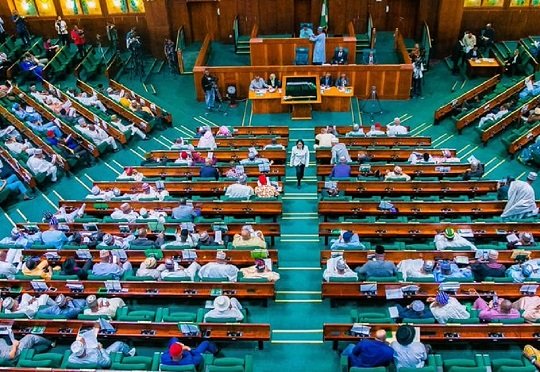
THE House of Representatives on Wednesday asked the Minister of Power to sanction the Electricity Distribution Companies (DisCos) for “irresponsibility” and “wickedness” in power distribution.
Lawmakers took turns to recount the experiences of their constituents in the hands of DisCos, who they accused of defrauding Nigerians with impunity.
They said nothing would bring Nigerians as much joy as to hear that the DisCOs have been sanctioned.
They spoke when the Minister of Power, Sale Mamman, appeared before the House Committee on Power to defend the ministry’s 2021 budget.
The committee asked the minister to furnish the House with details of how much the government has benefited from its 40 per cent equity in the privatised companies.
It insisted that DisCos should be made to pay for the electricity transformers donated by communities and community leaders to get power supply.
The committee chairman, Magaji Dau Aliyu, alleged the DisCos are practically cheating Nigerians who are made to pay various sums of money even after donating transformers to them.
Addressing the minister, Aliyu said: “My happiness is that you and I are on the same level: you are in the APC (All Progressives Congress), I am in APC; you are for the President and we are for the President.
“So, please, sanction the DisCos; punish them, please. If you do that, you will be our darling and you will be a darling to Nigerians also. Really, Nigerians are cheated.
“We don’t know what is the best arrangement. Are we better of when we had PHCN (Power Holding Company of Nigeria) than we are now?
“The problem is that you have allowed them to have Bands A, B, C and D. They said people in my village don’t pay for power, so, they will not give us power.
“I have over 30 transformers in my place that are new but we don’t have light, because we are in Band D. They are only looking for Band A and Band B customers.
“So, we are going to make a law to disband this banding of power. Power should be supplied equitably to anybody. This segregation must be stopped”.
Wale Raji (APC, Lagos) described the DisCos as irresponsible.
“We do not even know whether we are better off under this present arrangement or the NEPA or PHCN that we abandoned.
“Transformers will break down and when they (residents) even call on the DisCos to complain about it, some officials even take the transformers away and never return them.
“Then, the communities are forced – they have no option – to buy a new transformer. Not having money to buy it, they resort to their elected representatives who knocked on their doors for votes,” he said.
Ibrahim Olarewaju (APC, Ekiti) said: “They (constituents) almost burnt down my house. And what is my offence? The transformer in the town broke down, so I must buy a transformer for them.
“I had to borrow N5million to buy a brand new transformer when they started protesting again.
“I have been on this transformer issue for one year. Mr Minister, you need to help us because the truth about the matter is that the problems we are facing in the constituency are not a joke. It almost became an inter-quarters riot.”
The committee expressed concerns over the ministry’s failure of to declare accrued revenue from the trillions of naira invested in the power sector over the years by the government.
Mamman said Nigeria’s installed grid power generation capacity has grown from 8,000mw to 13,000mw under the leadership of President Muhammadu Buhari.
He said that the distribution system could evacuate 5,500mw of power having grown from 4,500mw in 2015.
“Under the able leadership of President Muhammadu Buhari, the country’s grid power capacity has increased significantly from the time this administration took over in 2015 to date.
“During the period between 2015 to date, the sector has recorded successes and has faced challenges.
“To deliver this administration’s promise of providing stable and affordable power to Nigerians, a way forward was defined and supported by Mr President’s political will,” he said.
news
Update : FG confirms continuation of crude, refined product sales in Naira initiative, Says Wale Edu

 The Federal Government has confirmed the crude and refined product sales in Naira initiative remains a standing national policy and will continue indefinitely.
The Federal Government has confirmed the crude and refined product sales in Naira initiative remains a standing national policy and will continue indefinitely.
However, the policy will stay in place as long as it serves the public interest and supports Nigeria’s broader economic goals.
This assurance was contained in the official X (formerly Twitter) handle of the Federal Ministry of Finance on Wednesday morning amid growing inquiries on the status of the policy.
The Ministry stated the initiative, first approved by the Federal Executive Council (FEC), is a long-term strategic directive and not a short-term or provisional measure.
According to the Ministry, stakeholders have reconvened to reiterate their full support and ongoing commitment to ensuring the successful implementation of the initiative.
The policy, which mandates the transaction of crude oil and refined petroleum products in Naira, is aimed at strengthening the country’s economic sovereignty, enhancing local refining capacity, and stabilizing the foreign exchange market by reducing the demand for dollars in domestic petroleum transactions.
The Ministry explained that this policy is structured to foster energy security and encourage investment in domestic refining infrastructure.
“The Crude and Refined Product Sales in Naira initiative is not a temporary or time-bound intervention, but a key policy directive designed to support sustainable local refining, bolster energy security, and reduce reliance on foreign exchange in the domestic petroleum market,” the statement reads.
While acknowledging that the transition involves complexities, the government admitted that existing challenges are being systematically addressed.
“As with any major policy shift, the Committee acknowledges that implementation challenges may arise from time to time. However, such issues are being actively addressed through coordinated efforts among all parties,” the Ministry said.
To assess the progress made and address lingering implementation issues, the Technical Sub-Committee on the Crude and Refined Product Sales in Naira initiative held a review meeting on Tuesday. The gathering brought together key figures involved in the execution of the policy.
Among the attendees were the Minister of Finance and Coordinating Minister of the Economy, Mr. Wale Edun, who chairs the Implementation Committee; and the Executive Chairman of the Federal Inland Revenue Service (FIRS), Mr. Zacch Adedeji, who heads the Technical Sub-Committee.
Also present were the Chief Financial Officer of NNPC Limited, Mr. Dapo Segun; the Coordinator of NNPC Refineries; Management of NNPC Trading; representatives from the Dangote Petroleum Refinery and Petrochemicals; and senior officials from the Nigerian Upstream Petroleum Regulatory Commission (NUPRC), the Nigerian Midstream and Downstream Petroleum Regulatory Authority (NMDPRA), the Central Bank of Nigeria (CBN), and the Nigerian Ports Authority (NPA). A representative from Afreximbank and the Secretary of the Committee, Hauwa Ibrahim, also attended.
This policy, which aligns with the government’s broader economic reform agenda, is expected to support local content development, ease pressure on Nigeria’s foreign reserves, and provide a more predictable pricing structure for refined petroleum products in the domestic market.
The presence of major players from both the public and private sectors at the meeting shows the scale of collaboration required to sustain the policy. It also reflects the growing confidence in Nigeria’s shift toward economic policies that prioritize local capacity and currency resilience.
news
Breaking : TInubu appoints Bashir Ojulari as new CEO group of NNPC and GMD mele kyari get sacked, Says Onanuga
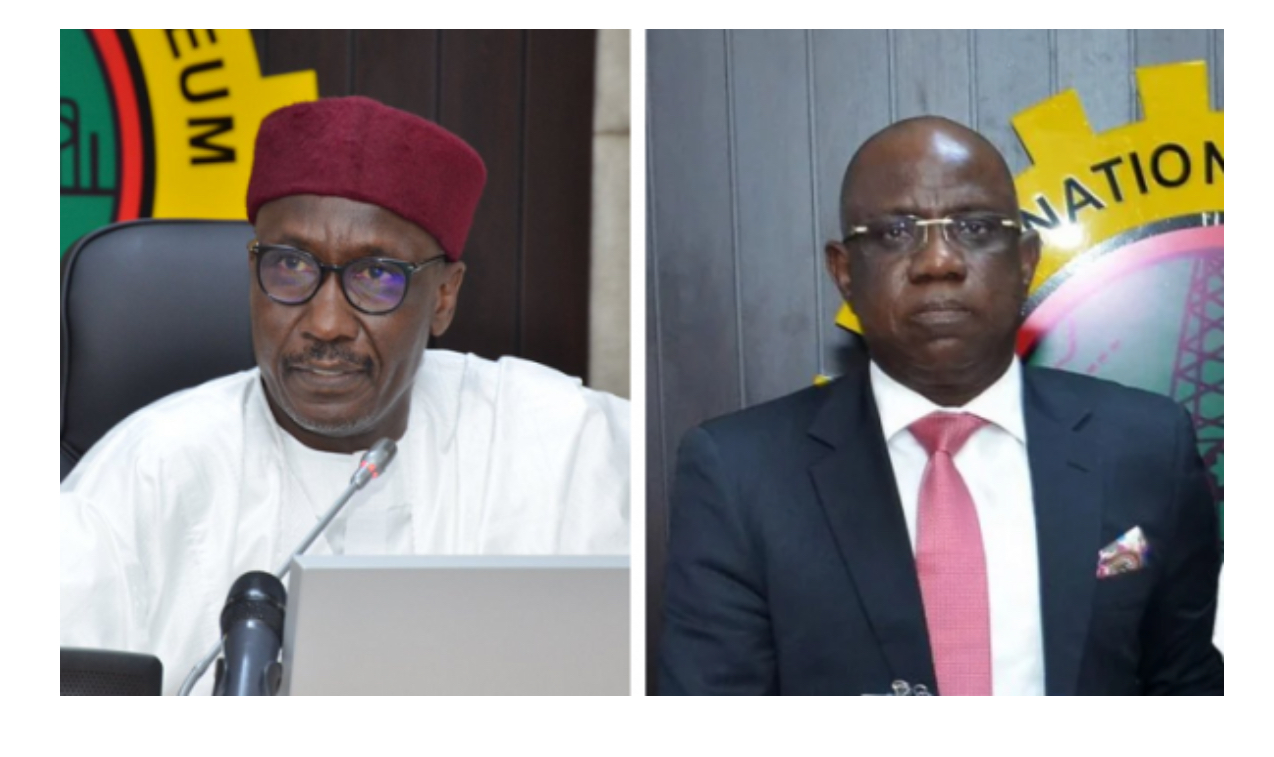
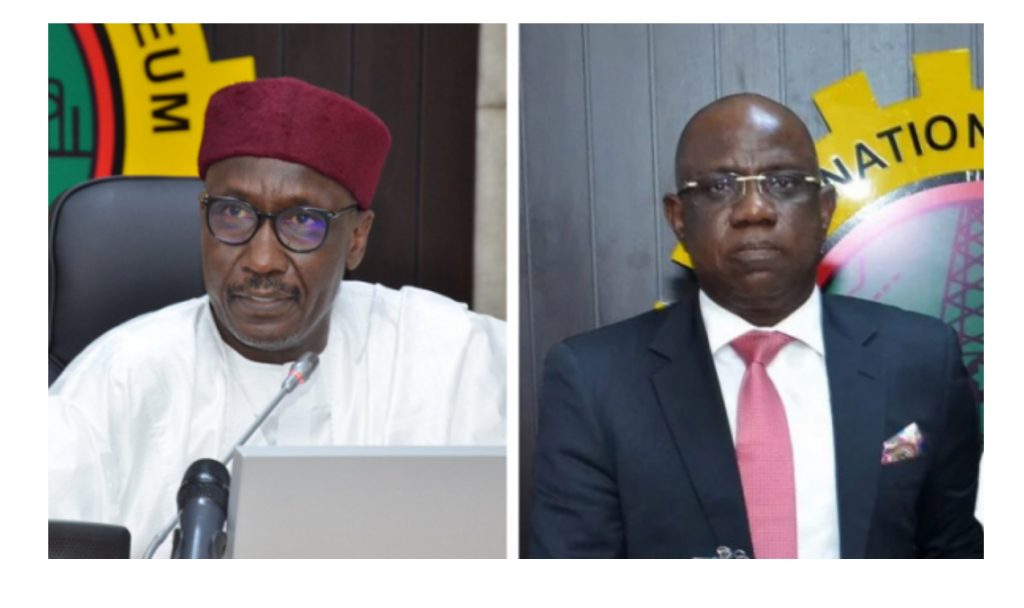 President Bola Tinubu has sacked the board of the Nigerian National Petroleum Company (NNPC) including its Group Chief Executive Officer, Mele Kyari and board chairman Pius Akinyelure.
President Bola Tinubu has sacked the board of the Nigerian National Petroleum Company (NNPC) including its Group Chief Executive Officer, Mele Kyari and board chairman Pius Akinyelure.
The decision, effective April 2, 2025, was announced in a statement by presidential spokesperson Bayo Onanuga.
President Tinubu cited the need for enhanced operational efficiency, restored investor confidence, and a more commercially viable NNPC as the driving forces behind the decision.
Invoking his powers under Section 59(2) of the Petroleum Industry Act (PIA) 2021, he reconstituted the board with new leadership aimed at repositioning NNPC Limited for greater productivity and alignment with global best practices.
Kyari was first appointed NNPC chief by former President Muhammadu Buhari but was reappointed in 2023 by President Tinubu.
As part of the overhaul, Bayo Ojulari takes over from Kyari as the new group CEO, while Ahmadu Musa Kida has been appointed as NNPC’s new non-executive chairman, replacing Pius Akinyelure. Also, Adedapo Segun has been confirmed as the company’s chief financial officer (CFO).
In line with the PIA, the president also appointed six non-executive directors from each geopolitical zone.
They include Bello Rabiu representing the north-west, Yusuf Usman from the north-east, and Babs Omotowa, a former managing director of the Nigerian Liquefied Natural Gas (NLNG), for the north-central.
Others are Austin Avuru for the south-south, David Ige for the south-west, and Henry Obih for the south-east.
Meanwhile, Lydia Shehu Jafiya, the permanent secretary of the federal ministry of finance, and Aminu Said Ahmed of the ministry of petroleum resources will represent their respective ministries on the new board.
“This restructuring is aimed at repositioning NNPC Limited for greater productivity and efficiency in line with global best practices. We are taking bold steps to transform the company into a more commercially driven and transparent entity,” the statement reads.
The changes take effect immediately, and the new board has been handed a strategic action plan, which includes a “review of NNPC-operated and Joint Venture Assets to ensure alignment with value maximisation objectives”.
news
Tinubu commended Nandap for her leadership, extends Comptroller-General tenure till 2026, says Onanuga

 President Bola Tinubu has approved the extension of the tenure of the Comptroller-General of the Nigeria Immigration Service, Kemi Nandap, until December 31, 2026.
President Bola Tinubu has approved the extension of the tenure of the Comptroller-General of the Nigeria Immigration Service, Kemi Nandap, until December 31, 2026.
Nandap, who joined the NIS on October 9, 1989, was appointed as Comptroller-General on March 1, 2024, with an initial tenure set to end on August 31, 2025.
A statement by the president’s Special Adviser on Information and Strategy, Bayo Onanuga, on Monday, said for her leadership, noting improvements in border management, immigration modernisation, and national security under her watch.
“Under her leadership, the Nigeria Immigration Service has witnessed significant advancements in its core mandate, with notable improvements in border management, modernisation of immigration processes and national security measures.
“President Tinubu commended the Comptroller-General for her exemplary leadership and urged her to continue dedicating herself to the Service’s strategic priorities, which align with his administration’s Renewed Hope Agenda,” the statement read.
He also reaffirmed his commitment to supporting the NIS in safeguarding Nigeria’s borders and ensuring safe and legal migration.
-

 news4 years ago
news4 years agoUPDATE: #ENDSARS: CCTV footage of Lekki shootings intact – Says Sanwo – Olu
-

 news1 year ago
news1 year agoEnvironmental Pollutions : OGONI COMMUNITY CRIES OUT, THREATENS TO SHUT DOWN FIRSTBANK,SHELL OIL COMPANY OPERATIONS FOR NOT PAYING COURT AWARD
-
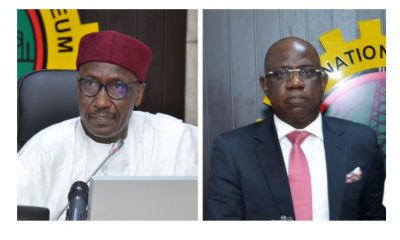
 news1 week ago
news1 week agoBreaking : TInubu appoints Bashir Ojulari as new CEO group of NNPC and GMD mele kyari get sacked, Says Onanuga
-
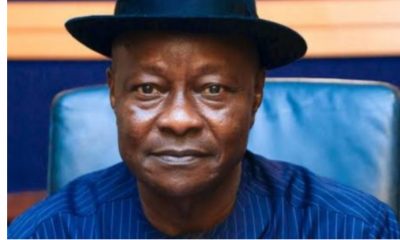
 news2 weeks ago
news2 weeks agoUpdate : Fubara ordered bombing of Rivers Assembly, I am not under duress I resigned, Says ex-Rivers HoS Nwaeke
-
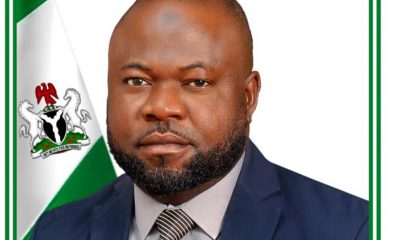
 interview2 weeks ago
interview2 weeks agoNIGERIA MECHANIZED AGRO EXTENSION SERVICE PROJECT, A STRATEGIC MOVE TO ALLEVIATE POVERTY – DR. AMINU ABDULKADIR
-

 news2 weeks ago
news2 weeks agoTinubu commended Nandap for her leadership, extends Comptroller-General tenure till 2026, says Onanuga
-

 brand2 weeks ago
brand2 weeks agoGTCO Plc Releases 2024 Full Year Audited Results …Pays Shareholders Record Dividend of N8.03k for 2024 Financial Year
-
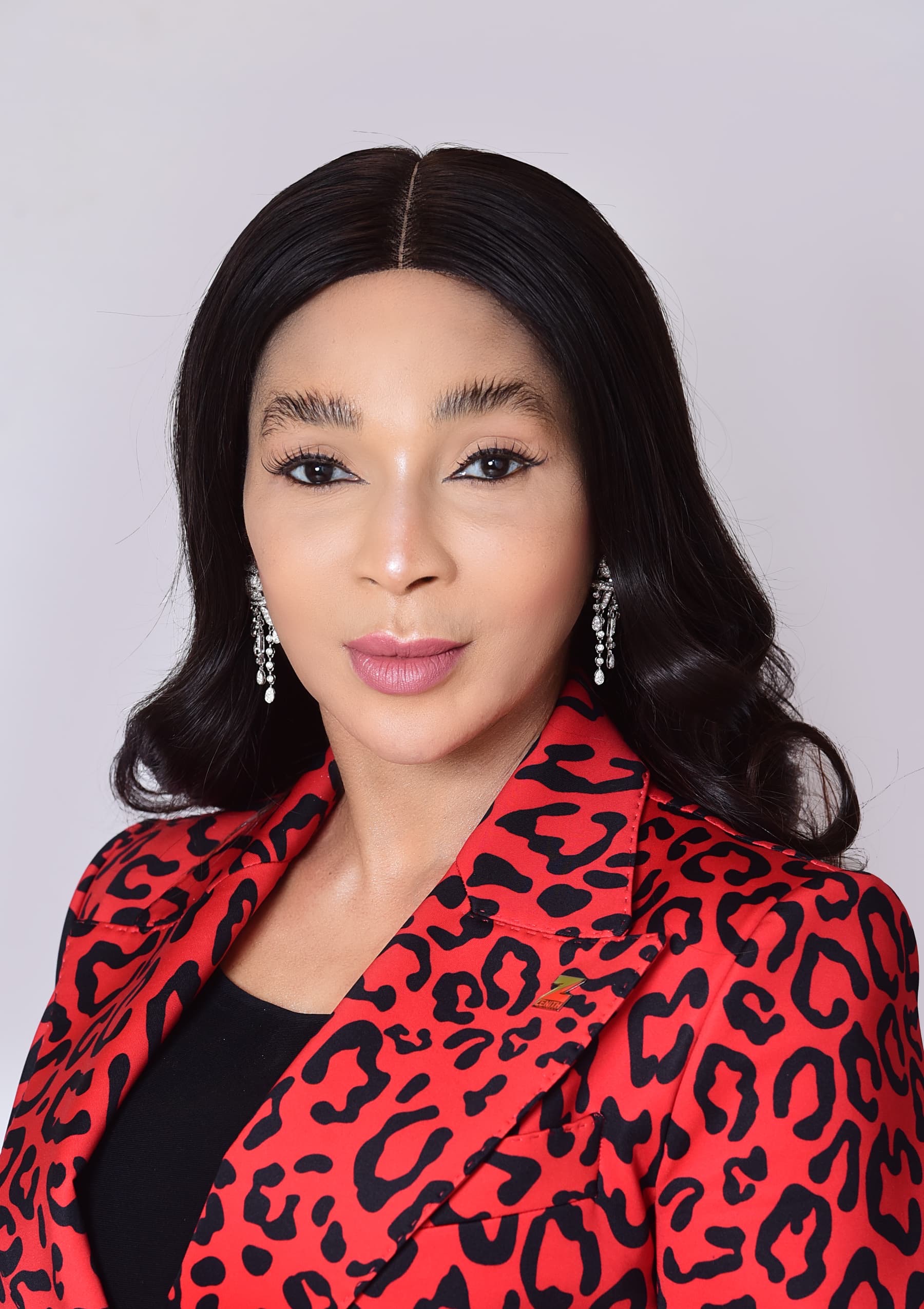
 brand2 weeks ago
brand2 weeks agoZENITHz BANK MAINTAINS SUPERLATIVE PERFORMANCE WITH PBT OF N1.3 TRILLION IN FULL YEAR 2024


